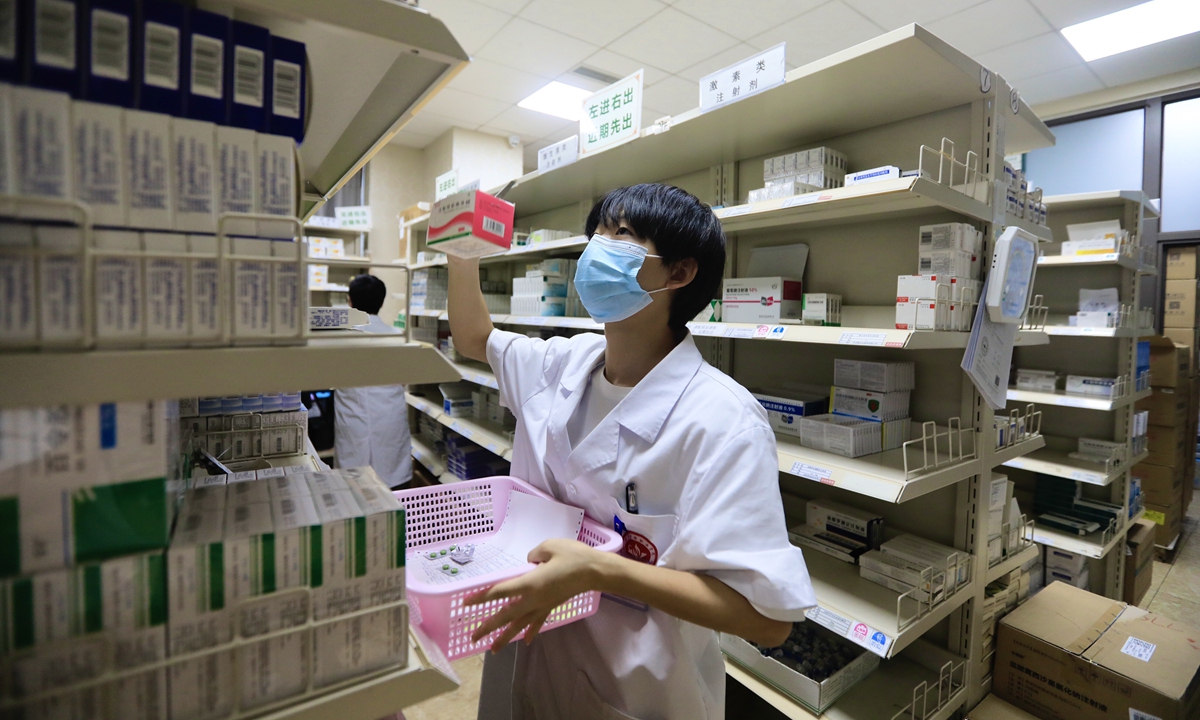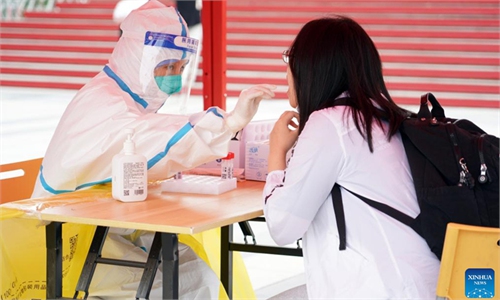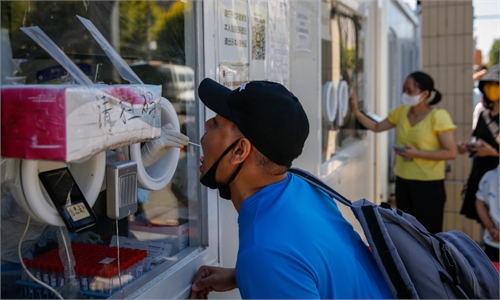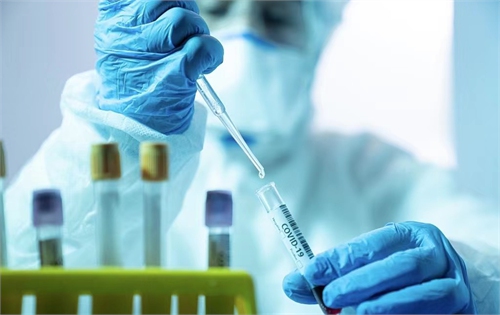China strengthens COVID-19 measures for upcoming holidays, likely to be adjusted by end-Oct

A medic group in Chengdu, Southwest China's Sichuan Province, help local residents in need to select drugs and deliver to their household amid a COVID flare-up on September 8, 2022. Photo: IC
China has strengthened a series of anti-epidemic measures including advising residents to stay put from September to late October, the National Health Commission (NHC) announced on Thursday, as frequent personnel flows and gatherings in the two upcoming holidays - the Mid-Autumn Festival and the National Day Holiday -- bring more risks of COVID-19 flare-ups. Afterwards, the tightened measures will be adjusted based on the epidemic situation, authorities said.
"The pandemic globally is still at a high level, and the Omicron variant has become the dominant strain, as our country is facing the continuing pressure of imported cases," Wu Liangyou, a deputy director of the NHC disease control bureau, said at a press conference on Thursday.
A total of 29 provinces in the Chinese mainland have reported locally transmitted cases since September, and community spread and epidemic spillovers have not been cut off in some areas, according to the commission. The Chinese mainland on Wednesday registered 241 local cases and 1,093 asymptomatic cases, according to the NHC.
With the approach of the Mid-Autumn Festival and the National Day Holiday, increasing personnel flows will also raise the risk of the epidemic spreading, and the prevention and control situation is "grim and complex," Wu noted.
Recent flare-ups in some regions including South China's Hainan Province and Southwest China's Xizang Autonomous Region have indicated that the outbreaks were related to increasing personnel flows, Guangzhou-based medical expert Zhuang Shilihe told the Global Times on Thursday.
On this basis, the health authorities established these measures to better control the epidemic, although limited personnel flows will have some impact on people's lives in the short term, noted Zhuang.
The measures were made to avoid epidemic spread around the holidays and minimize the impact on people's normal lives, according to officials. Residents are advised to avoid unnecessary trips and passengers must present a negative nucleic acid test certificate within 48 hours before boarding planes, trains, buses or other means of transportation.
Wu said that these measures will be taken from September 10 to the end of October, and then authorities will further optimize them, based on the epidemic situation.
Cross-provincial passengers are suggested to take nucleic acid tests when arriving at their destinations. Also, a health code and 72-hour nucleic acid test negative result are needed before checking into hotels or entering tourist attractions.
The authorities also suggest avoiding unnecessary gatherings, and for events that must be held, people should follow the related preventive measures including 48-hour nucleic acid test negative results.
Lu Hongzhou, head of the Third People's Hospital of Shenzhen, said that the virus will keep evolving and mutating. The mutations are uncertain and need more timely monitoring to detect new variants. The long-term focus should be put on the nasal-spray vaccines and the research and development of anti-virus drugs, Lu said.
China approved the world's first inhaled COVID-19 vaccine on September 4, which was developed by CanSino Biologics. Nasal-spray vaccines could help to bring the COVID-19 pandemic under control, the World Health Organization (WHO) said Wednesday, according to Medical Xpress on Wednesday.
WHO emergencies director Mike Ryan said "nasal vaccines generated immune response in the respiratory mucosa in the lungs," according to the report.
But Zhuang noted that the production capacity of the inhaled COVID-19 vaccine developed by CanSino is still limited, and it still takes time to evaluate its effectiveness. Residents should still be alert toward the epidemic as it will spread easily in the upcoming winter season.



